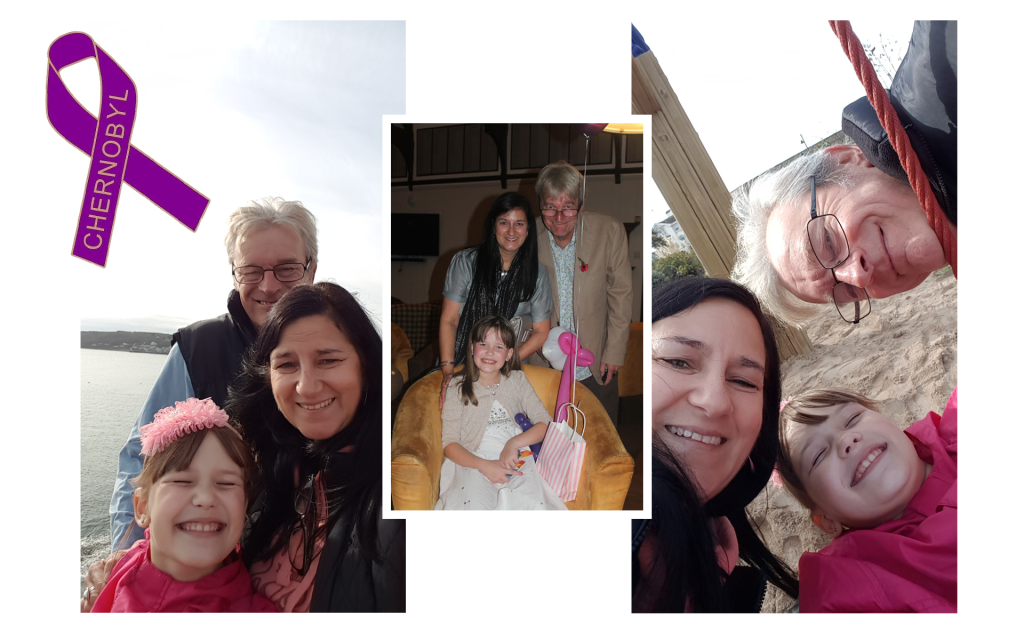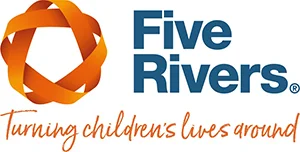Caring for Yana, a child of Chernobyl
Friday 14 September 2018
Last updated: Wednesday 26 May 2021

This is a post from Julie Beasley, a Five Rivers Supervising Social Worker based in Cornwall who took a month out to look after a 9 year-old girl from Chernobyl. Julie believes looking after Yana has helped her empathise more with the feelings that foster carers go through.
Just like foster carers we had mixed feelings of fear and excitement about a new placement – how will we all get along? Will the placement work for the child and for us? How will the child feel about leaving their birth family and coming to live with strangers?
On April 26th, 1986 the World’s worst nuclear power disaster occurred at Chernobyl in the former USSR. Studies show nearly one million people, including children born afterwards, have died – mainly of cancer. Thanks to Children of Chernobyl International, children born in areas affected by this terrible disaster can come to the UK for a month to have a recuperative break.
When my partner Gary and I picked up a leaflet at a charity event for Children of Chernobyl in Truro, we looked at each other and knew instantly we wanted to host a child. It would take a year of meetings, fundraising and assessments before we were to have the privilege of hosting a little 9 year-old girl called Yana.
Yana would be coming all the way from Belarus with another 12 children, some she knew and others she didn’t. Prior to her arrival we had received a pen picture with a little bit of information about her – we would have liked more information but had to go with what we had got.
At the beginning of October, Gary and I were waiting anxiously until it was time to collect Yana. How would Yana feel in a strange country with strange people, in their house, eating their food and not being able to speak Russian?
We had got her room ready – girlie pink, teddy, night-light and soft bedding and extra clothing – all in the hope that she would like this. We didn’t realise how much this all meant to Yana who on her last night when we had packed up her things, went back into her room and said goodbye to it.
We collected Yana from St Ives where late that evening she was brought to us from the coach looking tired and bewildered. I gave her a cuddle and we introduced ourselves and talked nonsense to her all the way home in the hope of reassuring her. When we got to our house we showed her around and helped her settle.
Throughout Yana’s stay with us my partner and I became very attached to her. She was the most endearing, delightful little girl, very cuddly and affectionate with me and with my partner, playing games and teasing him, giving him nicknames and generally giving him a hard time in a nice way!
We enjoyed many days out with Yana and the other children in the group who were all great, fantastic characters and fun to be around. We also met the other hosts who were looking after their child in their different ways.
Communication in the main was not a problem – we used mime, expressions, Google Translate, pointing, useful phrases written in Russian and English and a most useful ‘First Thousand Words in Russian’ Usborne picture book. Yana also understood a lot of spoken English.
We only had a few miscommunication episodes. Once I was trying to find out if she liked eggs and thought I was using the correct Russian word. I frantically said it over and over, miming like a chicken and making the shape of an egg while Yana kept saying “I don’t like!”. My partner then told me I wasn’t saying ‘egg’ but ‘hare’. Oops. Poor Yana must have wondered why we were asking if she wanted a ‘hare’ for breakfast!
We’ll never forget the many fun and happy times we had with Yana – we all laughed lots each day she was here. There were difficult moments when Yana went into little sulks about not getting her way, but these were just moments and we worked through them by being calm, using humour, and being sensitive towards how Yana was feeling.
She fitted in so well – the house was taken over by her toys, drawings and clothes – I am still finding stickers and sequins from art and craft activities. She would cuddle up on sofa, rearrange our ornaments and even lay the table when it was time to eat. There was nothing difficult at all. When it was time for Yana to go back to Belarus, instead of her one little rucksack, she took back two holdalls stuffed with clothes, shoes, and presents for her and family and – we hope – memories of a happy, fun time.
Some people question if it’s cruel to give children a happy time, give them lots of things they don’t usually have and then send them back to the difficulties they came from. We don’t think there’s anything wrong with giving them an opportunity to have fun and have nice memories to treasure when times are difficult. We knew Yana was ready to go back to her family who may be poor and unable to provide for her in some ways materially – but they loved her and she loved them. We could tell that by way they chatted on the phone.
Gary and I were an emotional mess after we left her at the airport and we miss her very much but we are still so glad we did the hosting and so glad Yana was chosen for us: we very much hope to stay in touch with her.
We are not rushing into doing this again – it was emotionally hard to let her go. But the experience of doing this with my partner was a brilliant one so we probably will – after a bit of time to reflect on the experience.
Julie Beasley, Five Rivers Supervising Social Worker, Cornwall.
Yana’s visit was arranged via www.ccll.org/ St Ives Link.
There are thousands of children all looking for a foster home in the UK. Could you be a hero to one of them? We are recruiting caring people like Julie to be carers and social workers for our fostering and residential care operations around the UK. Find out more about our vacancies: https://five-rivers.org/recruitment/work-for-us/
